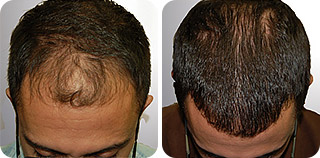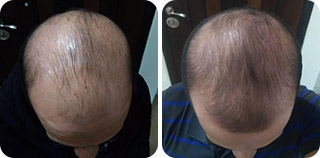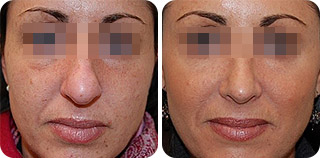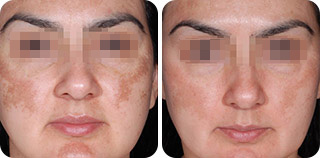Important Facts About Calcium Role in the Body

Calcium is an important nutrient that your body needs for many basic functions. Read on to learn more about this mineral and how much you should be getting.
Calcium plays a role in your body’s functions
Calcium plays a role in many of your body’s basic functions. Your body needs calcium in order to circulate blood, move muscles, and release hormones. Calcium also helps carry messages from your brain to other parts of your body.
Calcium is a major part of tooth and bone health as well. It makes your bones strong and dense. You can think of your bones as your body’s calcium reservoir. If you don’t get enough calcium in your diet, your body will take it from your bones.
Your body doesn’t produce calcium
Your body doesn’t produce calcium, so you have to rely on your diet to get the calcium you need. Foods that are high in calcium include:
dairy products such as milk, cheese, and yogurt
dark green vegetables such as a kale, spinach, and broccoli
white beans
sardines
calcium-fortified breads, cereals, soy products, and orange juices
You need vitamin D to absorb calcium
Your body needs vitamin D in order to absorb calcium. That means you won’t fully benefit from a calcium-rich diet if you’re low on vitamin D.
You can get vitamin D from certain foods, such as salmon, eggs yolks, and some mushrooms. Like calcium, some food products have vitamin D added to them. For example, milk often has added vitamin D.
Sunshine is your best source of vitamin D. Your skin naturally produces vitamin D when exposed to the sun. Those with darker skin don’t produce vitamin D as well, so supplements may be necessary to avoid deficiency.
Calcium is even more important for women
Several studies show that calcium may ease symptoms of premenstrual syndrome (PMS). This study concluded that women with PMS have lower intakes of calcium and magnesium, and lower serum levels.
The recommended amount depends on your age
How do you know if you’re getting enough calcium? The National Institutes of Health (NIH) say that adults should get 1,000 mg every day. For women over 50 and during pregnancy and breast-feeding, NIH recommends 1,200 mg daily.
One cup of skim, low-fat, or whole milk contains about 300 mg of calcium.
Lack of calcium can lead to other health issues
A lack of calcium could lead to other health issues. For adults, too little calcium can increase your risk of developing osteoporosis, or frail and porous bones that easily fracture. Osteoporosis is especially common in older women, which is why the NIH recommends they consume more calcium than their male counterparts.
Calcium is essential for children as they grow and develop. Children who don’t get enough calcium may not grow to their full potential height, or develop other health issues.
Calcium supplements can help you get the right amount
Not everyone gets the calcium they need from diet alone. If you’re lactose intolerant, vegan, or just not a fan of dairy products, you may find it difficult to get enough calcium in your diet.
A calcium supplement can help add calcium to your diet. Calcium carbonate and calcium citrate are the two most recommended forms of calcium supplements.
Calcium carbonate is cheaper and more common. It can be found in most antacid medicines. It needs to be taken with food in order for it to work well.
Calcium citrate doesn’t need to be taken with food and may be better absorbed by older people with lower levels of stomach acid.
Take note that calcium supplements do have side effects. You may experience constipation, gas, and bloating. The supplements may also interfere with your body’s ability to absorb other nutrients or medications. Check with your doctor before starting any supplements.
Too much calcium can have negative effects
With any mineral or nutrient, it’s important to get the right amount. Too much calcium can have negative side effects.
Symptoms such as constipation, gas, and bloating may indicate that you’re getting too much calcium.
Extra calcium may also increase your risk of kidney stones. In rare cases, too much calcium can cause deposits of calcium in your blood. This is called hypercalcemia.
Some doctors think that taking calcium supplements can increase your risk of heart disease, but others disagree. At the moment, more research is needed to understand how calcium supplements affect heart health.
Takeaway
Calcium is essential for building and maintaining healthy bones and teeth. Among other roles, it may also help manage blood pressure.
It is best to obtain sufficient calcium through dietary sources, such as dairy products, green leafy vegetables, and tofu. However, a doctor may recommend supplementation for some people.
Due to individual differences in requirements, experts do not recommend calcium supplementation for everyone. Anyone who is considering taking supplements should ask their healthcare provider for advice.
Resources
healthline.com
 Mr. H A, Aged 28After 11 Months
Mr. H A, Aged 28After 11 MonthsI had dandruff since the beginning of the time, and unfortunately, in the past years, hair loss was added to it, and the front part of my head was out of hair. After treatment, dandruff and hair loss were wholly gone, and hair on the front part of my head started to grow again.
 Mr. M S, Aged 35After 6 Months
Mr. M S, Aged 35After 6 MonthsAs you can see in my photo, I lost almost all my hair. After 6 months with Dr. Nasirzadeh's program, a lot of thin hair is growing on my head. I am very happy and hope that more hair will grow as I continue my treatment. Thanks to Dr. Nasirzadeh.
 Ms. M A, Aged 42After 3 Months
Ms. M A, Aged 42After 3 MonthsWith Dr. Nasirzadeh’s recommendation, first, I did a blood test then I got my program. He advised me some supplements, creams and solutions. The spots on my face have faded, the puff under my eyes are also gone and in general, my skin is younger and brighter. I’m completely satisfied with the treatment.
 Ms. Zh K, Aged 29After 3 Months
Ms. Zh K, Aged 29After 3 MonthsThe supplements and creams that Dr. Danial recommended to me had a great effect on my skin, I’m satisfied with the result and I will complete my treatment with him for the desired result. Special thanks, doctor.
 Ms. J, Aged 27After 3 Months
Ms. J, Aged 27After 3 MonthsA friend of mine introduced Dr. Nasirzadeh to me. Some blood tests were needed to begin the program, and I sent him the blood test reports. He sent me a program that included two supplements, one multivitamin and the herbal Breast Enhancement, also a moisturizer to prevent skin cracks. I was advised to take them for 3 to 4 months until my breasts reached the desired size. I am now at the end of the third month. My breasts have become bigger and are in better shape.
 Ms. Z, Aged 25After 3 Months
Ms. Z, Aged 25After 3 MonthsDr. Nasirzadeh gave me a great program. One cream and two supplements recommended based on the results of hormonal tests. The result was what I wanted and I'm glad that I was under his treatment.
 Mr. E J, Aged 34
Mr. E J, Aged 34I had chronic sinusitis for many years, and I had to take antibiotics for that. My problem always recurred in the cold season, and it was never completely resolved until I started treatment with Dr. Nasirzadeh. My program included a number of supplements and recommendations that after a few weeks not only completely cured my sinusitis but also increased my energy level. Thank you from the bottom of my heart, Dr. Nasirzadeh
 Ms. R Y, Aged 32
Ms. R Y, Aged 32I got mild Covid-19 and isolated myself at home. I felt very tired, and my body ached, so I took an online program from Dr. Nasirzadeh to boost my immune system. After three days, I feel better, and the dizziness and other symptoms have decreased. I also took two separate programs for my parents to strengthen their immune system too.
